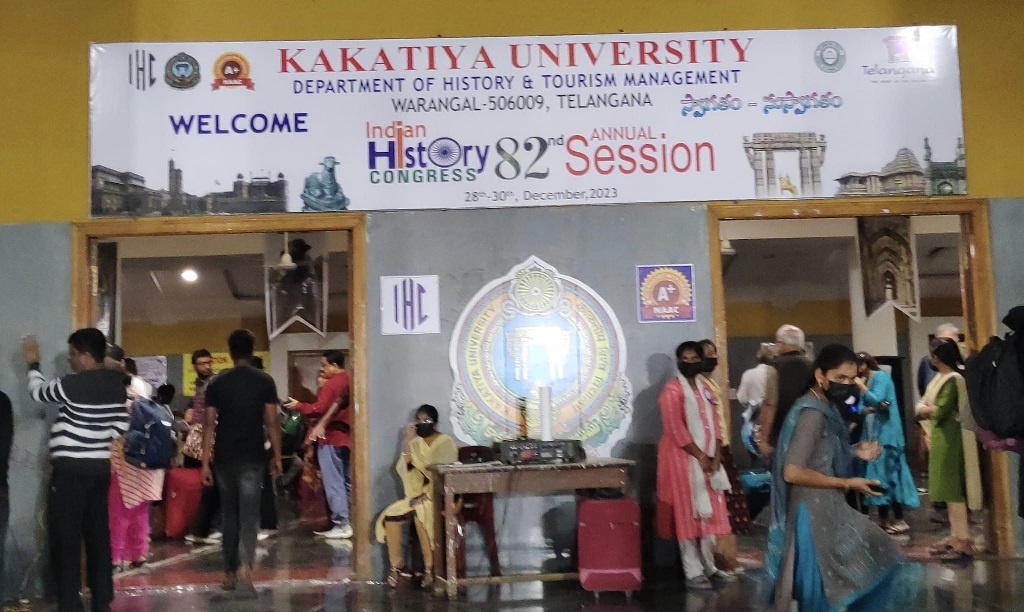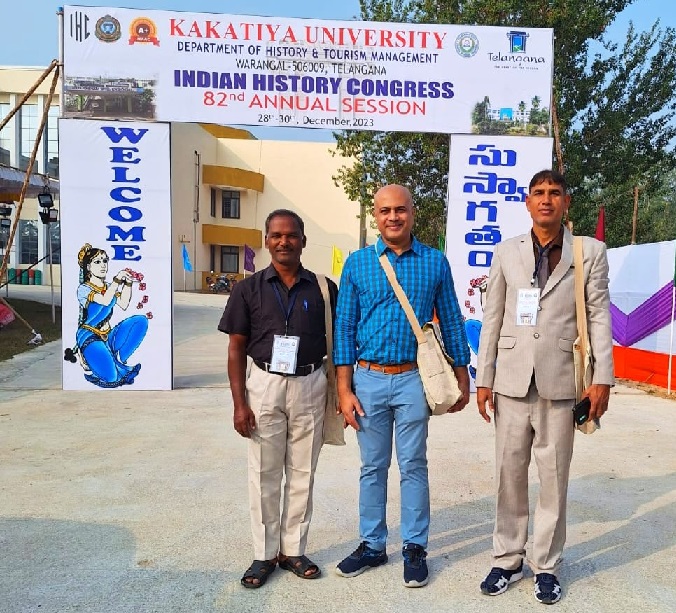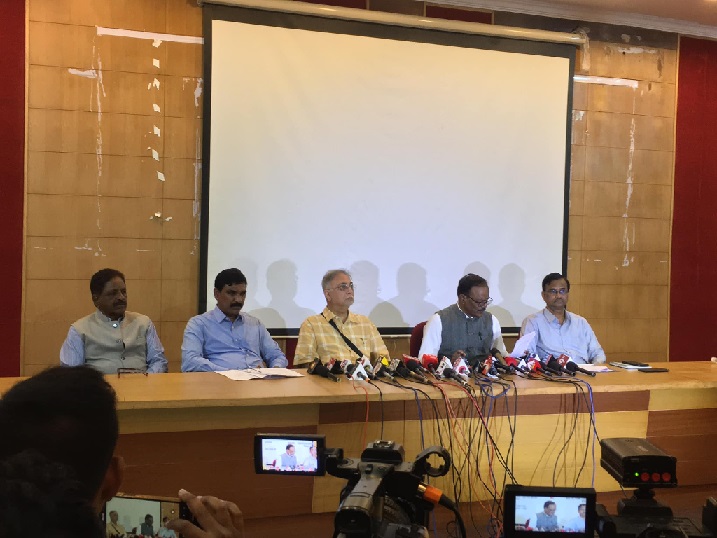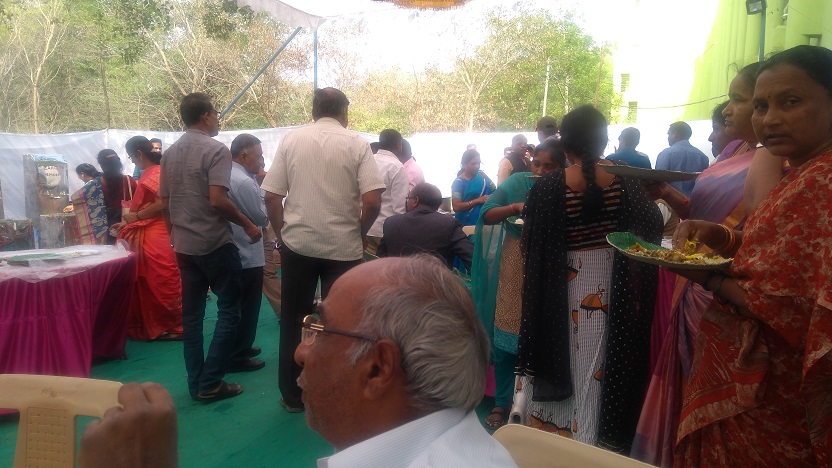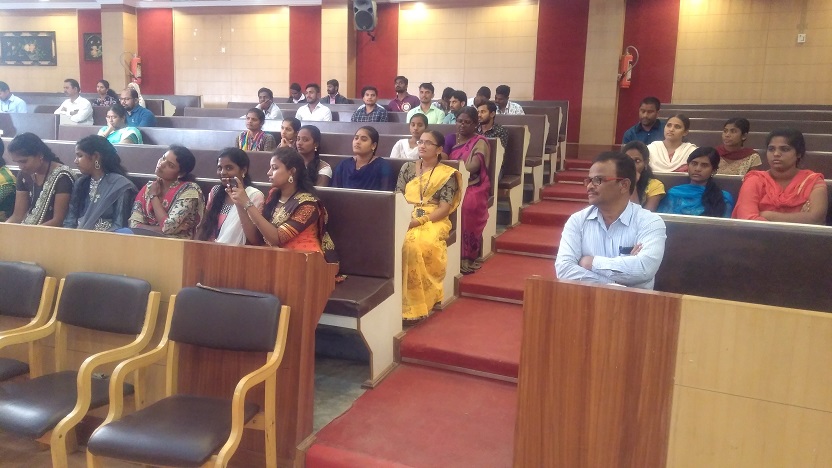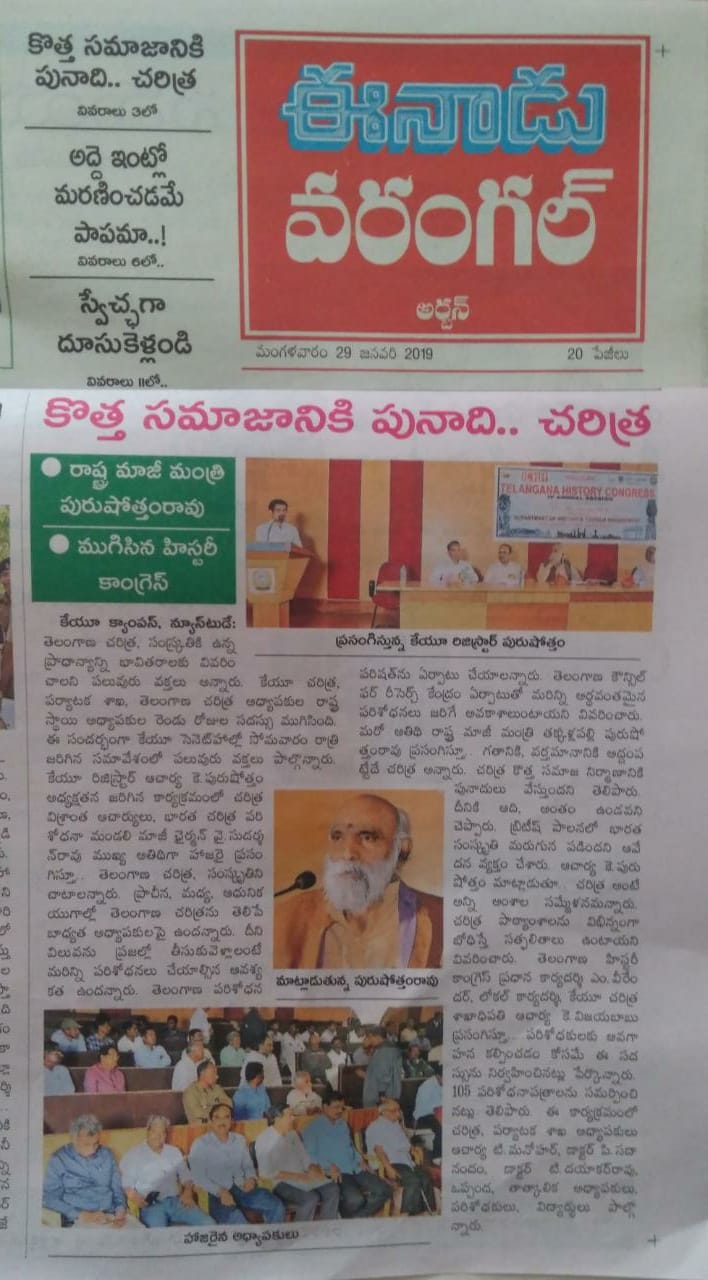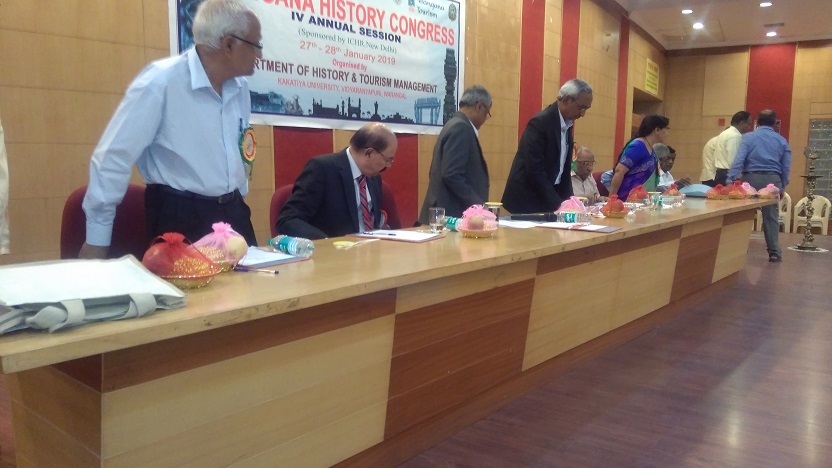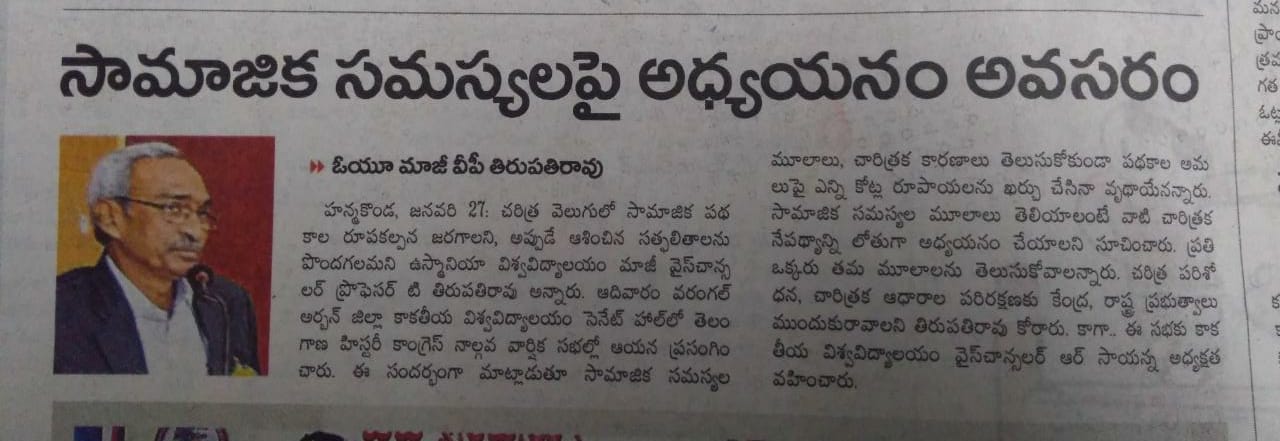The Proceedings of the 82nd session of Indian History Congress held at the Kakatiya University (3)

Mridula Mukherjee who inaugurated the session: Mridula Mukherjee is the daughter of V.D. Mahajan. Vidya Dhar Mahajan (1913-1990) was a historian, political scientist, and advocate. He married to Savitri Shori Mahajan who was a historian. They had two daughters and one son. Their son Ajay Mahajan and daughters Sucheta Mahajan and Mridula Mukherjee are also historians. Sucheta and Mridula have been professors of history at the Jawaharlal Nehru University’s Centre for Historical Studies. Sucheta had been a visiting scholar at the College of Wooster in Ohio and Fondation Maison des Sciences de l’Homme (Foundation House of Human Sciences) in Paris. Mahajan died on 10 July 1990 at the age of around 77 years. Ironically, he studied at the Sanatan Dharma College, Lahore which was closed after 1947 and started in 1948 in India. Perhaps, the IHC might dub him as “nationalist” historian placing him along with Jadunath Sircar, KAN Sastri, Ajay Mitra Sastri and others[1]. However, Mridula Mukherjee has been that of “IHC category.” She has been rebellious and litigant also, as she fought legally against her brother and also with the government, when she was not given an extension for his post.

Ancient India

Hindu identity and Indian nationalism
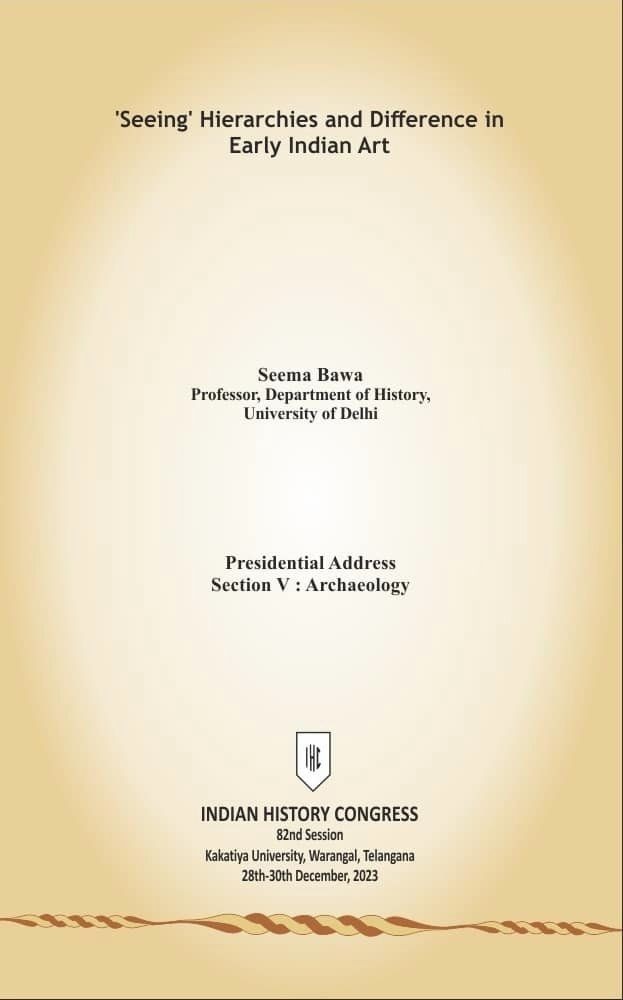
Parallel sessions on different topics, symposiums etc: The Aligarh Historians Society started holding special sessions with invited historians on some selected themes and topics. Most of the lectures would be monotonous, as the speaker or the paper reader would go on to speak or read and most of the audience would be in the relaxing mode. Rarely, there would be interaction or questions allowed. College delegates might feel that it would be esteemed to be there and listen to them. This year, they announced that K.L. Tuteja delivered ‘Professor S C Misra Memorial Lecture’ and K.M. Shrimali a special lecture on ‘Sanatan Humanism’ at the university auditorium from 5.30 p.m. at the university auditorium on Thursday.
The three-day event also featured a symposium on –
- ‘Reason and Ideology in Indian History’ and parallel sessions –
- Aligarh Historians Society Panel on ‘Reconstructing Indian Economic History’ and
- IHC panel on ‘Deccan: Past and Present’ and ‘Dalit History Panel’.
About, “dalit,” very often, they used to make hue and cry, but, none bothered about the constitutional validity and legality. Just like some vested media and the Christian groups, interestingly, these historians also engage themselves and rehash what they have already recorded in their writings and speeches. They would be verbose with narratives and discourses based on micro and macro studies with a lot of usage of statistics also[2]. In fact, to prove their points, they use statistics and such data manipulation can be easily found by the mathematicians and statistics experts. This also, I have been pointing out many times.

Symposium on dalit..

What you should do, if your paper is not listed: These details are included in the “List of papers” booklet issued by the IHC:
- If a paper is not listed here or in the Supplementary List, because a member’s paper was not received in time or for some other and the member wishes to present it at this session, he/she may please hand over two copies of the paper at the Secretary’s Office immediately.
- If a member had sent his/her paper in time, and it is not listed in the Section for which he had sent it, he may please check it in the Section to which by its theme it may have been assigned. For example, if a paper is sent to Section I or II, but deals with archaeological matters, it may be found in Section V (Archaeology). If it is still not found there, the member concerned may please immediately inform the IHC office at the venue of the session.
- Some members while sending their papers omitted to give their Membership Nos. They would need to let us have their Membership Nos. before presenting their papers, in the Assigned Sections.
- It will not be possible to include any paper that has not been received latest by 4 pm., on the first day of the session
So just to get into the “List of papers,” one has to pass through such ordeal, but, what they say about the publication of the paper presented. Read the following carefully.

Ancient India

Health and medicine
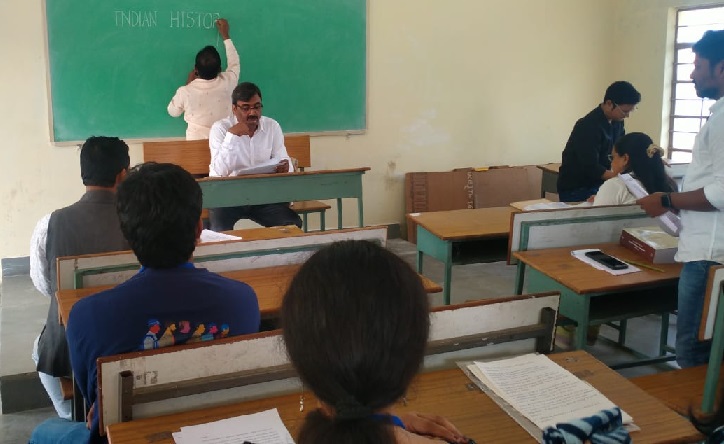
Health and medicine session.

IHC standards coming down or it wants to go the easy way: The IHC claimed[3], “Due to constraints of space, summaries have not been published over the past several years. Since 2016, the list of papers presented has also been omitted, as all papers presenters are awarded certificates at the session itself.”
- 2016 to 2022, “the following papers were also presented” – list was not printed, in other words, those papers are rejected, they have to be happy with the certificates given!
- The editorial policy as had been recorded above shows their way of functioning, selecting and accommodating in the bulky volume. Therefore, “Due to constraints of space,” excuse becomes redundant.
- That “all papers presenters are awarded certificates,” is quite amusing, as they have not come here to get such “awards,” that too, “at the session itself”!
- Because, they would not be given at any other place, as IHC would not conduct any ritual to do so.
- In fact, it is not any ISI or ISO 90021, such standard certification to be displayed.
- When the papers of Sectional presidents are already printed and distributed during the session, there is no necessity to print their papers again in the volume to waste paper. They are “awarded” for heading the session suitably.
- Yet, these rituals are conducted and going on.
The scientific approach to study history is also and always emphasised for the last 40 years.
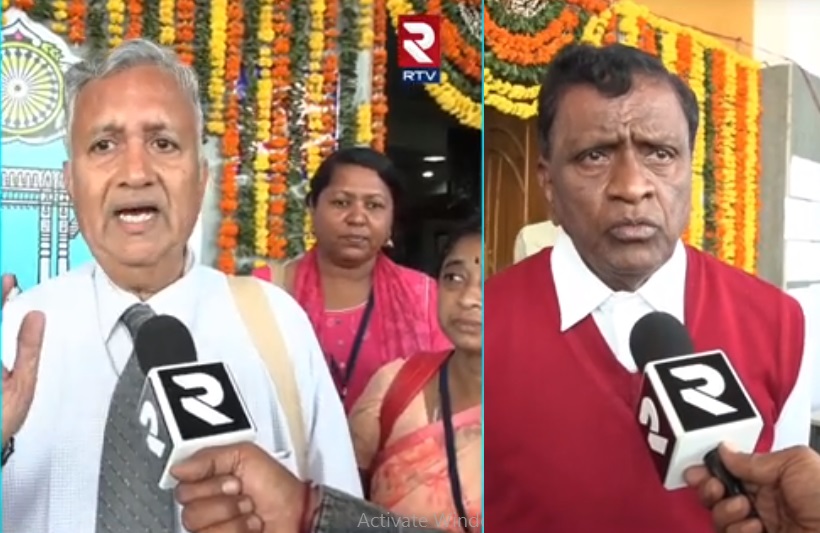
How delegates react to the local media?: Some local media persons tried to get feedback from the delegates and the delegates mostly praised the IHC, organizers and the arrangements made, in a stereotype mode that appears artificial. There were cultural and entertainment programs arranged in the evening. The videos uploaded and available had been only of this nature and the critical discussion about the proceedings, particularly, about the academics, paper reading, questions asked, how the paper presenter and audience reacted and such other details were not forthcoming. Whether the same pattern of presenting papers, getting certificates and going away would serve the purpose or it should be changed and such other serious issues are not dealt with or discussed. In the social media, of course, there have been some photos, but, they have been that of individual nature. They appear to feel great to present paper at the IHC and get a certificate. So this is a really unfortunate attitude and such mind-set would not be helpful to serious researchers. Moreover, the IHC has become very indifferent in the aspect, s year by year, they were making the paper presenting as a mere ritual.

Food and accommodation: From the feedback received from the delegates, food and accommodation had been satisfactory. Only about the Rs. 5,000/- delegate fees, many expressed that it was high. As for as the accommodation is concerned, at some places, the delegates were asked to vacate on 30th evening / night itself. Because of the chill and foggy climate, the trains were running late. Therefore, some were to be accommodated at the University guest house and they had to go to station to catch their trains. As has been dealt with this issue in earlier conferences, many times, it is better that the organizers have limited crown with complete academic-oriented proceedings, so that such crown can be accommodated satisfactorily. As hundreds of delegates come for sightseeing or as tourists, the increasing delegate fees only affect the genuine researchers, students and lower-middle class / poor categories.
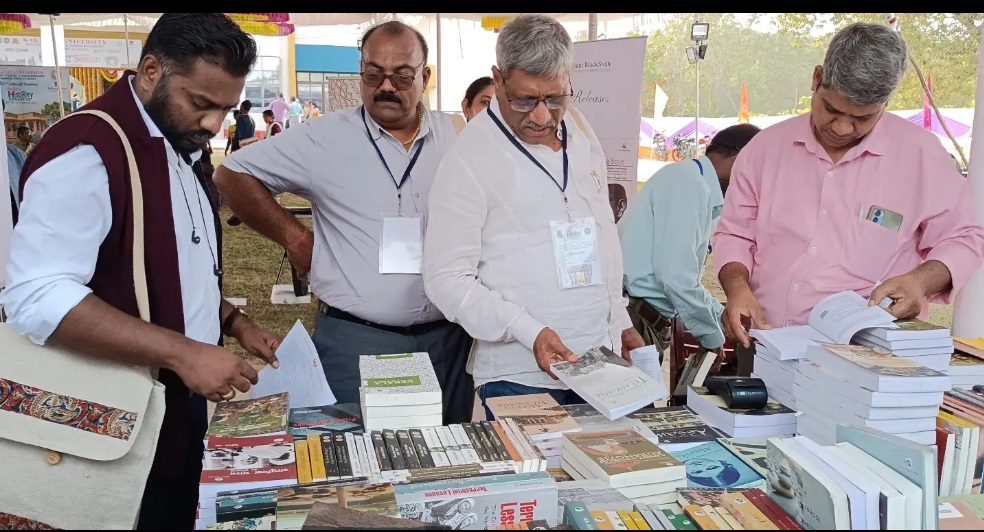
Interested are going through the books…..

Book stalls etc: Book stalls and related items were also accommodated, where different publishers displayed their books. Definitely, interested delegates had visited the stalls, gone through some of books, but only few buyers. Obviously, the prices of books have been going on increase to Rs 1000/- and so, and ordinary readers, students and others cannot afford to buy such books. Therefore, they just do “window shopping.” They might ask about the price, giving discount and then, silently move away. As usual, the “Puducherry World History Congress” stall was there, but, none was there when, our representative had gone there. Definitely, the coterie of IHC might not like such an organization coming up. Anyway time would tell during the course of time, when people come and go.
© K. V. Ramakrishna Rao
31-12-2023
[1] During the BM-RJB issue, the historians got themselves divided into several categories – Masjid historians-Mandir historians; Babri historians – Bajrang historians; sacred historians – communal historians and so on; even archaeologists were divided accordingly.
[2] Now, anyone carefully reads the articles in “Economic and political weekly, ” such trend can be noted. For social processes, none could fix the parameters and decide the social behavior, conflicts and related processes. Perhaps, to prove their “scientific nature” of studies, they have been prone to use such methods.
[3] IHC proceedings, 80th session, Kannur,2019, Preface, p.ix
Filed under: myth, myth promoted, nation, nation building, nation-building, nation-state, nehru, nehru model, nehruvian, refutation, regionalism, research, research paper, researcher, reservation, Role of Reformers, scheduled caste, scheduled tribe, scholar, secession, sectarian, sectarian faith, sectarianism, sedition, services, slavery, social justice, social reform, Social Reform Movement, Social Reform Movement In India, social reformation, telugu, tour, tourism, uncivilized, Uplift of women, vijayanagar, Vijayanagara, warangal, woman, women | Tagged: bhuddhist relic, call-for-papers, cfp, conference, conferences, dalit, dalit literature, dalit narrative, historian, historical, historical politician, historicity, historiography, history, Jawahar Lal Nehru University, kakati, kakatiya, kakatiya university, mridula, Mridula Mahajan, nehru, nehru model, nehruvian model, warangal | Leave a comment »


